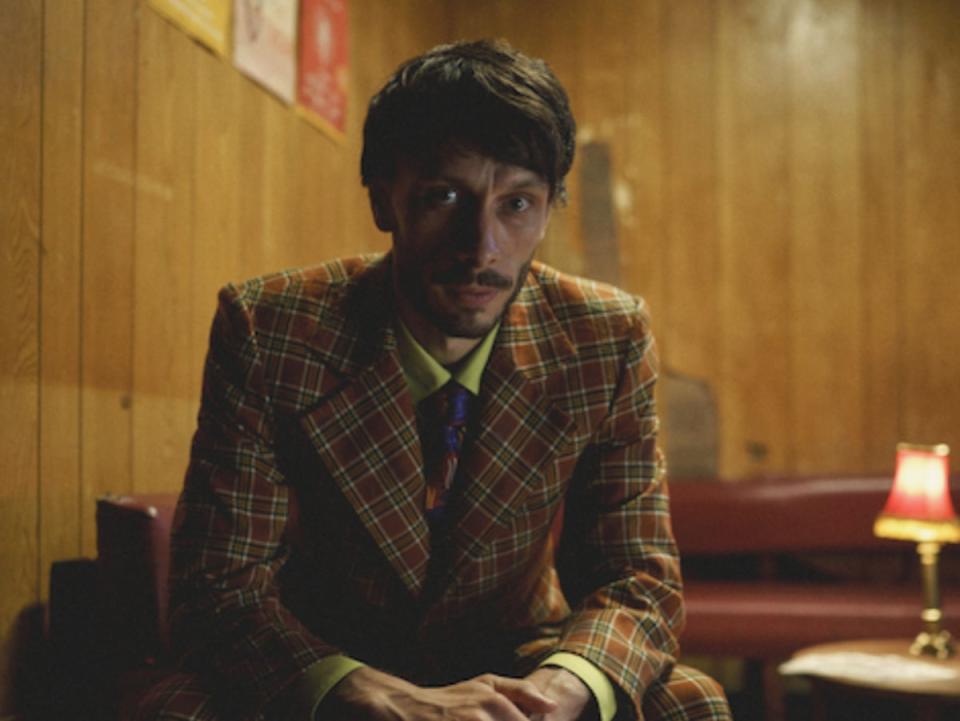Baby Reindeer review: This twisty, complex drama about a real-life stalking case is something very special
The Edinburgh Festival is a strange place. It is a place where you could be weeping over dramatic ineptitude at one performance and crying tears of emotional resonance at the next. A place where you’re as likely to laugh out of embarrassed bemusement as you are to let rip a hearty, belly chortle. In short, some of the shows put on during the Fringe are good – and some are absolute crap. So, when one gets a transfer to the West End, albeit curtailed by Covid, followed by a Netflix adaptation, you know it’s special. Such is the case for Richard Gadd’s Baby Reindeer.
Donny (Gadd) is a moderately successful bartender and a moderately unsuccessful comedian. One night, a woman walks into his pub in Camden weeping and Donny offers her a cup of tea, on the house. So begins the tale of Donny and his stalker, Martha (Jessica Gunning). “You’re utterly mad, aren’t you?” he tells her, affectionately. But it soon becomes apparent that Martha’s madness is not entirely benign. Flurries of eccentric, often explicit, emails are followed by more aggressive, intrusive invasions into Donny’s private life. What starts with a cup of tea ends in a multi-year campaign of harassment that drives Donny to the brink.
Funny stuff, eh? But Baby Reindeer, despite its origins in the world of stand-up comedy and its listing on Netflix as “offbeat”, is no mere quirky look at London’s comedy scene. Instead, it is a descent into the blackness of abuse and the residues of trauma. “If you aren’t living a life worth living,” Donny asks himself, “can someone ruin it at all?” For Gadd, who has adapted his show for the screen and cast himself in the lead, it is a deeply personal story – and a true one. A stalker, much like Martha, sent Gadd 41,000 emails over the course of three years. Let me do the maths for you: that’s 37 emails a day (a pace that even Groupon can’t keep up with).
Baby Reindeer is a visceral testimony to the psychological torment that Gadd experienced. Dealing with the arrival of Martha in his life forces Donny to confront both a sexual assault that had happened on the comedy circuit and broader questions about his sexuality and place in the world. “We’re all varying degrees of weird, aren’t we?” Teri (Nava Mau), a woman he’s dating observes. “Pretending to be human.” This is the question that vexes both Donny and the audience. Is he a nice guy, offering a cup of tea to a stranger in need, or a self-involved user, liar, and manipulator? The answers don’t seem clear. Gunning’s performance as Martha adds another layer of ambiguity: at times she is vicious, at times she is vulnerable, but she’s always a compelling presence in his life and on screen.
The show is almost over-stuffed with ideas. Among the most interesting is his relationship with Teri, a trans woman, where he experiences shame that results in him lying to her about his name and job, and only taking her to tucked-away hotel bars. Dealing with the complexity of these feelings is the sort of premise that could be a whole show in its own right, as is the generational impact of sexual abuse (Gadd/Donny’s family are Scottish Catholics). But Baby Reindeer’s most creatively central question is one of co-dependency. Does Donny allow Martha’s obsession to fester out of a desire to be someone? “I had a convicted stalker stalking me,” he repeats, mantra-like, after discovering Martha has been previously jailed for stalking. “Me,” he stresses.
In an interview I happened to see, conducted ahead of Baby Reindeer’s stage transfer to London, Gadd observed that “it’s a show I find very hard to do”. “But it’s going to the West End and I couldn’t be happier,” he added. This is the tension. At Donny’s early gigs, where he is routinely bombing, Martha laughs like a drain and suddenly the crowd is with him. Now this story – the years of intimidation – has offered Gadd a seven-part series on Netflix. In his desperation not to stand still and fall behind, did he encourage Martha?

Far from being a point of ignorance, this is something Baby Reindeer reflects upon. Donny is fragile and not entirely likeable, while the writing largely eschews laughs in favour of beats that oscillate between psychological thriller and kitchen-sink drama. But even if Martha calls him “baby reindeer” and acts like he is a wide-eyed naïf in the big city, neither Donny nor his creator is quite so innocent. This is twisty, mature, self-interrogating stuff that will leave you more troubled than tickled.


